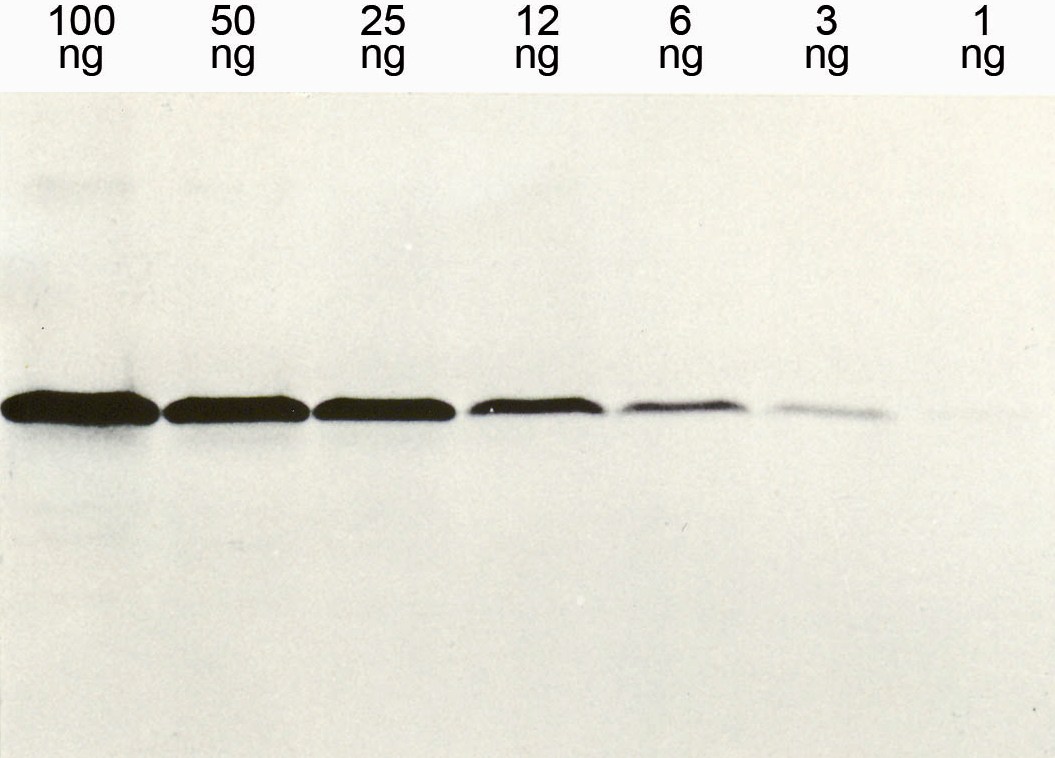Anti-His Epitop-Tag (rek) aus Maus (13/45/31) – Biotin

-
Übersicht
Artikelnummer DIA-900-BIOT Spezifität Spezies-Reaktivität Immunogen Wirtsspezies Isotyp Klon Klonalität (Mono-/Polyklonal) Anwendung Durchflusszytometrie (Flow Cytometry), Immuncytochemie, Immunfluoreszenz, Immunhistochemie (Gefrierschnitte), Immunhistochemie (IHC), Western Blot
Konjugation Verdünnung Durchflusszytometrie 5 – 10 µl/10^6 Zellen, ELISA 0,1 – 0,4 µg/ml, Immunfluoreszenz 1 – 4 µg/ml, Immunhistochemie (IHC): 1 – 4 µg/ml, Immunpräzipitation 4 µg/ml, Western Blot (WB): 1 – 4 µg/ml
Format 0,05% NaN3, 6% BSA, Biotin-konjugiert, gereinigter Antikörper (aus Kulturüberstand), in PBS (pH 7,4)
Produktlinie / Thema Zweckbestimmung Temperatur - Lagerung Temperatur - Transport Suchcode Hersteller / Marke Uniprot_ID Gene_ID Alias 6*His, 6His, 6histag, 6XHis, hexahistidine, HHHHHH, His Epitop-Tag, His Epitope-Tag, His Tag, his6, histidin tag, polyhistidine
- Datenblätter und Downloads
-
Weitere Produktinformationen
The mouse monoclonal anti-(His)6-tag antibody, clone 13/45/31-2 (H. Zentgraf/DKFZ Heidelberg, Germany), specifically detects any kind of histidine-tagged proteins in cells and complex cellular lysates. This monoclonal antibody specifically reacts with recombinant proteins containing an epitope of at least 6 histidine residues, located at the N-terminus, C-terminus or internally. A higher number of histidine residues leads to an increased binding affinity of the antibody, e.g. an expression construct with 10 histidine residues increases the affinity about 10- to 20-fold. Additional flanking amino acids are not required for antibody binding, therefore enabling the choice of many different expression vectors on the only condition that the TAG-epitope is sterically available.
The Antibody clone 13/45/31-2 /13/45/31 is with more than 100 citations one of the most cited His-Tag antibodies world wide.
Biotin-Konjugat
-
Bilder

Sensitiver Nachweis von His-Protein mit anti-His-Tag Antikörper Klon 13/45/31
Kontakt
